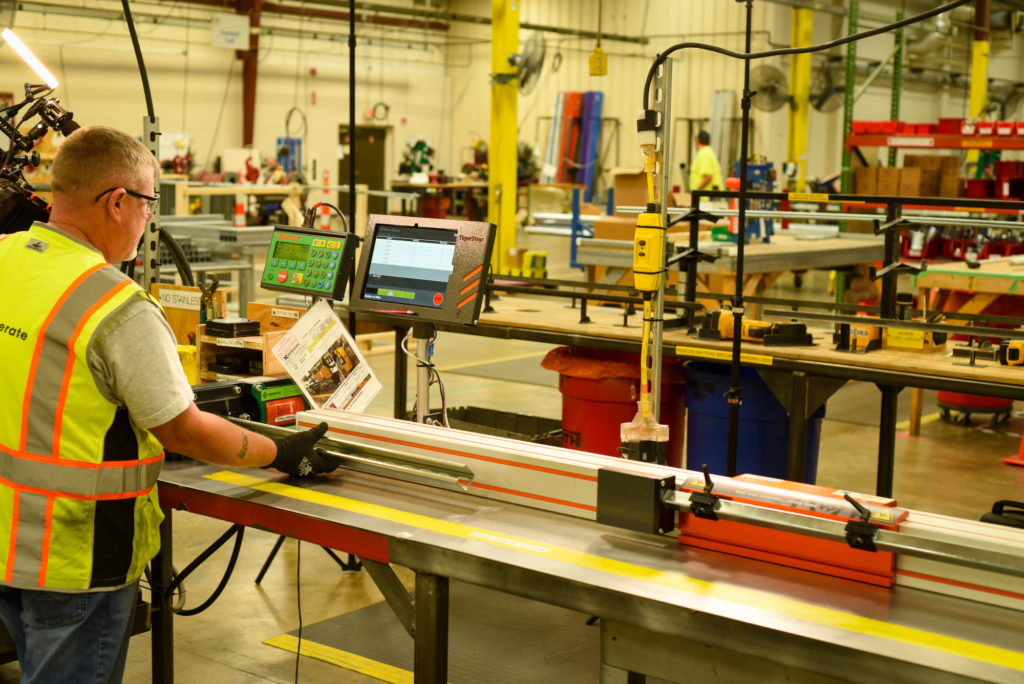August 3, 2022 Glenn Londre
Eliminating Manufacturing Waste Through Employee Engagement
“World-class organization” is a term I have heard many times throughout my career. Companies use that term as a stretch goal for when they start to implement lean manufacturing concepts and/or develop a lean operating system. The definition says it is the recognition of an organization as a benchmark by its industry sector. Along with our parent organization, FTI, Excellerate is considered a leader in many areas within our industry, and we strive to earn and keep that recognition through our actions in multiple ways.
Lean manufacturing, in the simplest definition, is removing anything other than the minimum amount of equipment, materials, parts, space and worker’s time which are essential to add value to the product. Simply put, if it doesn’t add value, it is considered waste, and every effort is made to reduce or eliminate it from our processes The manufacturing industry has established a list of eight forms of waste that we focus on:
- Transportation – The unnecessary movement of material
- Inventory – More material on hand than what is needed right now
- Motion – The unnecessary movement of people
- Waiting – Idle time created when material, information, people or equipment are not ready
- Over Production – Producing more than what is needed right now
- Over Processing – Additional effort that adds no value
- Defects – Work that contains errors, rework, mistakes or lacks something necessary
- Underutilized People – Failing to use the collective knowledge, experience and creativity of the workforce.
These wastes are all important and need to be addressed; however, in my opinion, underutilized people is the worst waste of them all. When an organization looks at improving its metrics and business overall, there are two factors that make the most difference when delivering your product or service to the customer: people and processes. At Excellerate, the biggest opportunity we have for improvement is to simply ask our employees how to improve our processes. Training employees to understand waste and how to see it is essential for us to continue to improve. Additionally, if individuals do not feel like they have a voice or they are not included or allowed to help solve problems, they will simply lose interest. Morale goes down and turnover goes up.
Leaders must be teachers, focused on ways to engage employees and tap into their ideas. It’s important to train, encourage, incentivize, recognize and most importantly, give employees the time to help implement their ideas. This creates buy-in and employees become advocates for improving. The focus must be about giving employees a seat at the table to improve their processes. They are the experts, the people doing the work, are closest to where the value is added and are most capable of identifying problems and coming up with countermeasures to mitigate them.
At Excellerate, we know that it’s critical that we are always working to identify, eliminate and/or reduce waste. Waste simply raises costs and lowers profits. By having empowered and engaged employees focused on continuous improvement and eliminating waste, we continue on our quest to be a world-class organization.
Interested in learning more? Check out our other articles and subscribe to be the first to know about future Excellerate blog articles.

 Eliminating Manufacturing Waste Through Employee Engagement
Eliminating Manufacturing Waste Through Employee Engagement

